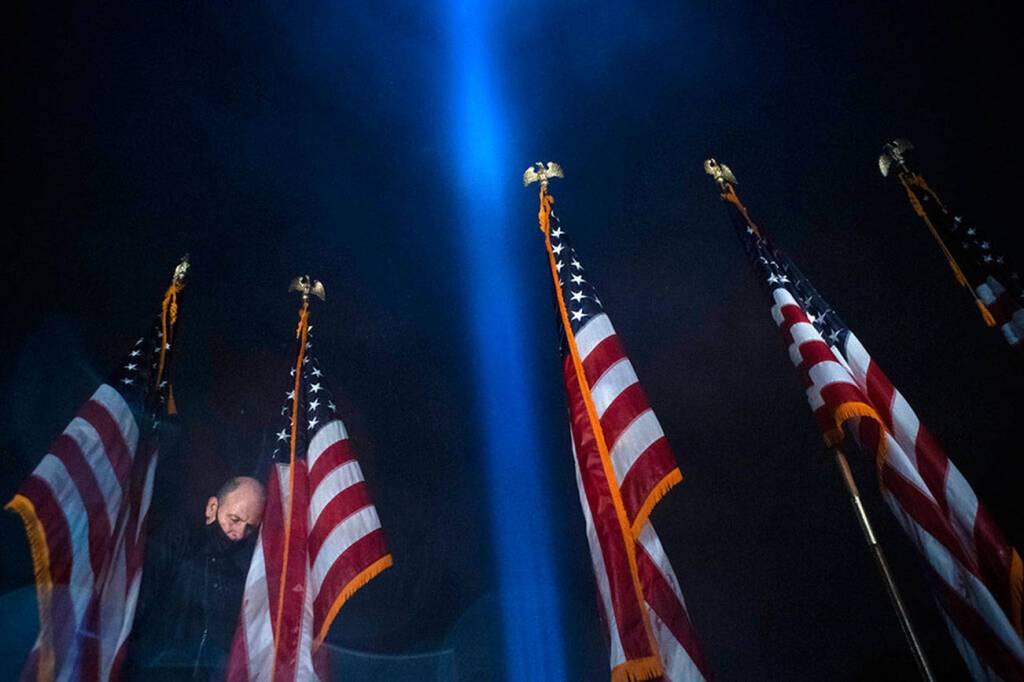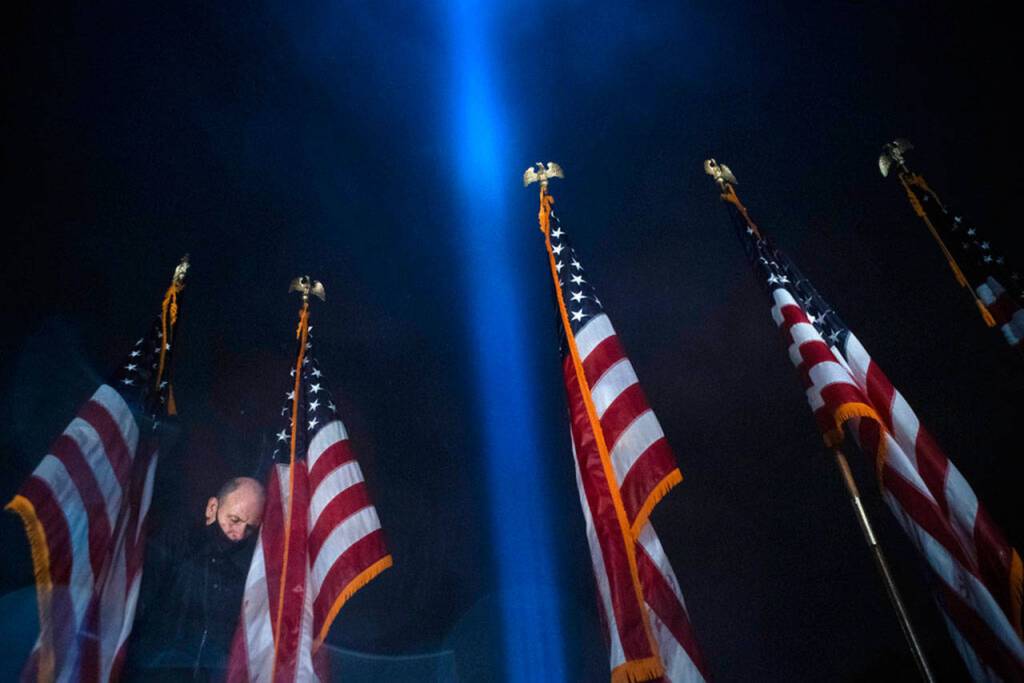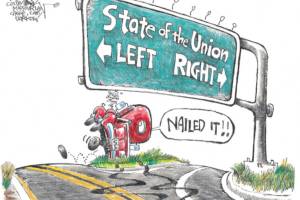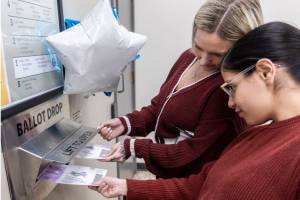Comment: Can we recover unity that sustained us after 9-11?
Published 1:30 am Friday, September 11, 2020


By Petula Dvorak / The Washington Post
Not too long ago — 19 years and a few days, to be exact — America was a different place.
In the days after the Sept. 11, 2001, attacks, liberals and conservatives flew American flags outside their homes and let them flutter from their car antennas. A Republican president spoke kindly and reassuringly at a mosque. Lawmakers from both parties sang “God Bless America” — together — on the steps of the Capitol.
“People were clapping when we went out anywhere in uniform,” said Lauren Cleary, 39, who was in the Navy and stationed in Norfolk the day terrorists flew jetliners into the World Trade Center towers, the Pentagon and, thwarted in their attempt to crash into the White House, a field in Pennsylvania.
“Everybody I know lost somebody in the Pentagon,” Cleary, a fifth-generation veteran said. “But we became unified as a country.”
“United We Stand” was the nation’s mantra when we were attacked from the outside.
And now look at us.
Our nation is in chaos. There’s civil unrest in cities from coast to coast as Black Americans continue to be killed by police. Families are being ripped apart by partisan politics. And disagreement reigns on how to stop a pandemic that has killed nearly 200,000 people, infected nearly 7 million, thrown our entire educational system into disarray, destroyed thousands of businesses and created the highest unemployment rate since the Great Depression.
What happened?
“Fear united us,” said Michael Petrovich, 51, who earned a medal for his heroic actions at the Pentagon that day. “Twenty years later and we’re very separated on a lot of things in this country right now.”
Petrovich was an army specialist whose office in the Pentagon’s E Ring was obliterated by the hijacked American Airlines Flight 77. Through flames, smoke and buckling walls, he managed to throw a bulky desktop computer to break a window and helped others crawl and jump to safety as the heat scorched his arms and face.
He’s a psychologist and adjunct professor at Marymount University in Alexandria, Va. now, retired from the military and deeply saddened by the state of our nation.
“That fear that united us,” he said, “people are using it as a chisel to divide us.”
And the brief moment of unity we felt after that day in 2001 never came back.
Now, the president who should be uniting us is instead dividing us, offering little direction on the path forward aside from belittling, issuing inciting tweets or reportedly calling members of the military who died or were injured in war “losers” and “suckers.”
“We are dividing into hostile tribes cheering against each other,” wrote retired Gen. Jim Mattis, President Trump’s former secretary of defense, “fueled by emotion and a mutual disdain that jeopardizes our future, instead of rediscovering our common ground and finding solutions.”
Mattis, after four decades in the Marine Corps leading attacks overseas, knows who our most dangerous enemy is.
“What concerns me most as a military man, coming out of a diverse yet unified culture, is not our external adversaries; instead, it is our internal divisiveness,” he wrote in his 2019 book, “Call Sign Chaos: Learning to Lead.”
“It’s the grift, the racism and the ugliness — all of it — that’s a threat,” said Sheri Zachary, 55, whose husband — an Air Force colonel — was in the Pentagon during the attack and was familiar with all the tactics, tribalism and ugliness of terrorists attacking America.
But now, she sees those as traits of this administration. “The problem has become that the threat we were united against back then has become internal,” she said.
Zachary’s husband, retired Air Force Col. Todd Zachary, called her that morning around 9:30 while she was staying home from work with a sick son.
“He asked me, ‘Are you watching the news?’ And I turned the TV on and there it was. New York, the twin towers. And then my husband said he had to go,” she said, figuring the Pentagon would be a busy place that day.
Then, as she was watching the news, a new billow of smoke appeared from a different building. The Pentagon.
She didn’t hear from her husband all day. She and her 10-year-old son kept watching the TV feeds, hoping to see his little red Miata drive out of the Pentagon parking lot. Just before dusk, an unfamiliar car pulled up to their driveway. Her husband got a ride home after he escaped the burning building.
That day is a history lesson for the students at the Philadelphia high school where she’s a librarian now.
Same for Petrovich, who teaches college students too young to have known that strong, united America, that World War II we’re-all-in-this-together feeling of unity that revisited our nation for a brief moment in the autumn of 2001.
“To them, it’s like Pearl Harbor was to me, it’s just a note in a history book,” Petrovich said. “They don’t have that motivation that united us at one point. That motivation point, that trickle-down effect of shared purpose, isn’t part of their lives.”
But it can be.
“It’s going to take some time, it’s going to take patience and forgiveness on the part of people, especially on the left,” Zachary said. “Everybody who unfriended anybody on Facebook, they have to let those people back into their lives. We have to repair those small things to begin healing our nation. It may take a generation.”
And it’s going to take a rebranding of that motto that everyone loved to use 19 years ago.
Because we forgot to use the second half of that biblical reference when we plastered it on all those buttons, bumper stickers, T-shirts and commemorative coins.
It’s “United We Stand.”
And “Divided We Fall.”
Petula Dvorak is a columnist for The Washington Post’s local team who writes about homeless shelters, gun control, high heels, high school choirs, the politics of parenting, jails, abortion clinics, mayors, modern families, strip clubs and gas prices, among other things. Before coming to The Post, she covered social issues, crime and courts.






